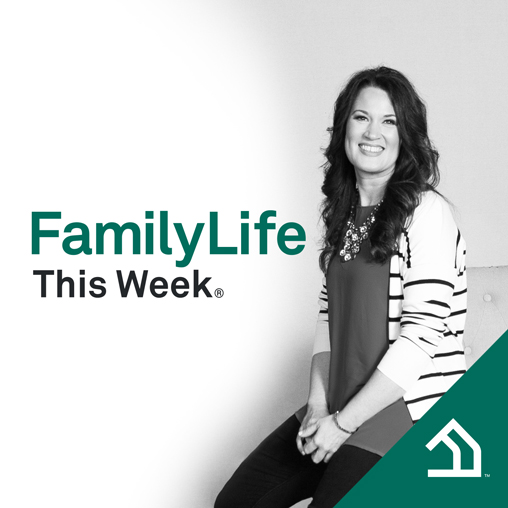
Dads and Legacy
A father's legacy leaves a lasting impression on his children, for good or for bad. H.B. Charles talks about his father's enduring legacy. Hear Jim Daly, Sally-Lloyd Jones, and Rick Rigsby give tributes to their fathers.
Show Notes
About the Host
About the Guest
-
- Listen to the full interviews with Ed Harrell https://www.familylife.com/podcast/series/out-of-the-depths/
- Find resources from this podcast at https://shop.familylife.com/Products.aspx?categoryid=130.
- Download FamilyLife's new app! https://www.familylife.com/app/
- Check out all that's available on the FamilyLife Podcast Network. https://www.familylife.com/familylife-podcast-network/
-
Michelle Hill
Radio has been ingrained in Michelle for most of her life. This love for radio has taken her to various radio stations and ministries in places like Chicago, Alaska and other snow covered terrains like her hometown in north central Iowa. In 2005 she landed on staff with Cru/FamilyLife®. While at FamilyLife she has overseen the expansion of FamilyLife Today® internationally, assisted with the creation of Passport2Identity™-Womanhood and is now the host of FamilyLife This Week®. For the last 15+ years Michelle has been mentoring young women and is passionate about helping them find their identity in God. She also has a fascination for snowflakes and the color yellow. Michelle makes her home in Little Rock, Arkansas.
-
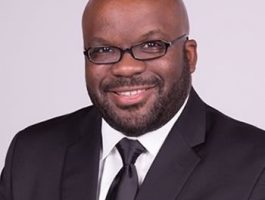
H.B. Charles
H.B. Charles is the Pastor-Teacher at the Shiloh Metropolitan Baptist Church of Jacksonville and Orange Park, Florida, where he has served since the fall of 2008. Prior to joining the Shiloh Church, he led the Mt. Sinai Missionary Baptist Church of Los Angeles for almost eighteen years. Succeeding his late father, he began his pastorate at Mt. Sinai at the age of seventeen – a senior in high school. He regularly speak at churches, conferences, and conventions around the country, and is...more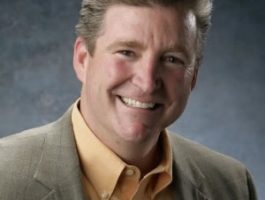
Jim Daly
Jim Daly's personal journey from orphan to head of an international Christian organization dedicated to helping families thrive is a powerful story. Abandoned by his alcoholic father at age 5, Daly lost his mother to cancer four years later - a wound deepened when his grieving stepfather emptied the family home and took off with almost everything while Daly, the youngest of five children, and his siblings were at their mother's funeral. Several tough years in foster care followed, before Daly...more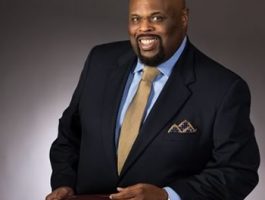
Rick Rigsby
Dr. Rick Rigsby is President and CEO of Rick Rigsby Communications. The former award-winning journalist followed a television career with graduate school—and two decades as a college professor . . . most of those years at Texas A&M University, where he also served as character coach and chaplain for the Aggies football team. Named twice as an outstanding professor in the College of Liberal Arts at Texas A&M, Dr. Rick has numerous publications. His first non-academic book—...more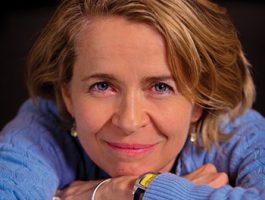
Sally Lloyd-Jones
Sally Lloyd-Jones is a leading writer of inspirational books for children. She is the author of three bestselling children’s Bibles, including the Moonbeam Award winner and ALA notable The Jesus Storybook Bible, as well as Thoughts to Make Your Heart Sing, winner of the ECPA Inspirational Book award. She has written many picture books for children, such as the critically acclaimed New York Times bestseller How to Be a Baby: By Me, the Big Sister and ...more
A father’s legacy leaves a lasting impression on his children. H.B. Charles talks about his father’s enduring legacy. Hear Jim Daly, Sally-Lloyd Jones, and Rick Rigsby give tributes to their fathers.
Michelle: In church on Sunday, how do you know if your preacher is reliable?—is it the number of degrees that he holds?—or maybe it’s his maturity—or his persuasiveness. That was more than an academic question when H.B. Charles was installed as pastor of his late father’s church; he was just 17.
H.B.: Dr. E.V. Hill preached a message at my installation service that he called, as only Dr. Hill can, “What Can That Boy Tell Me?”/“He’s only 17 years old. What can that boy tell me when my marriage is in trouble? What can that boy tell me when my child has gone astray?” For 45 minutes, he worked through passages in the Old and the New Testament that affirmed the sufficiency of Scripture. He ended by declaring that, “He can tell you whatever the Word of God tells.” [Applause]
Michelle: Today, we’re going to hear H.B. Charles share stories of his late father. We’re also going to hear some other tributes to dad on this Father’s Day edition of FamilyLife This Week.
Welcome back to FamilyLife This Week. I'm Michelle Hill. It was Mark Twain who said, “When I was a boy of 14, my father was so ignorant; I could hardly stand to have the old man around. But when I got to be 21, I was astonished at how much he had learned in those 7 years.” I remember those days; don’t you?
As you’ve heard, over the last few weeks, dads are an important influence in their children’s lives. Since this is Father’s Day weekend, I thought that it would be fitting to spend some time talking about dads. For that, I’d like to share the dynamic interview that Dennis Rainey and Bob Lepine had with H.B. Charles. H.B. is the pastor and teacher at Shiloh Metropolitan Baptist Church in Jacksonville and Orange Park, Florida.
Today, H.B. is going to share the impact that his father had on his life. That’s an impact that, Dad, you can have on your child’s life. Here’s H.B.
[Previous FamilyLife Today®Broadcast]
H.B.: I professed faith in Christ as a boy; and as a boy, I felt called to preach. My father was so against this—he did not want me to preach—because my father was a preacher. He did everything he could to discourage me. At the age of 11, he finally permitted me to “preach” at the end of a youth choir musical. They would give me a few minutes; and to hedge his bets, he wrote the message for me. [Laughter]
But I had been writing my own message on Daniel 3 and the three Hebrew boys. He wrote a story about Jesus passing by the blind man. They thought that, if they gave me these five minutes, they’d get this out of my system and they wouldn’t have to hear— but I came to preach that night! [Laughter]
Dennis: —at 11 years of age.
H.B.: Oh, at 11 years of age. I had the main script my father wrote for me. I read the first paragraph and, at the end of the paragraph, said, “Jesus is passing by”; I read that. You know, in the culture I grew up, there were “Amens.” There was this pause, and I had a natural break. After they stopped amen-ing and stuff, I said, “You know, He passed by for the three Hebrew boys one day,” [Laughter] and went on and preached my sermon on the three Hebrew boys; yes.
Dennis: So what did your dad say?
H.B.: Oooohhh, I got a grave fussing-out. [Laughter] But he encouraged/he was grateful that there was a call on my life as a boy. He was very hard on me: pushed me to reading, and studying, and research. In God’s ironic providence, all of my early years, I struggled with asthma really bad. If I went outside, it seemed that I would have an asthma attack; so it kept me inside. Being inside kept me around my dad and books; and it led me to one book, and my father was teaching me the Bible.
Bob: H.B., I would think a dad, who’s pastored his church for 40 years—his son comes to him at—I don’t know how old you were: seven, eight, nine years old; you come and you say, “I think I’m called to preach,”—I would think a dad would be delighted with that news.
H.B.: No; when I say he tried to discourage me, he was very, very grateful; and his hope was that, one day, I would succeed him.
Bob: So he tried to—
H.B.: He wanted to make sure that it was the Lord calling me.
Bob: It was not a carnal call; it was a spiritual call on your life.
H.B.: Yes, sir.
Bob: And after you preached about the three Hebrew boys, did he affirm that there was some gifting there?
H.B.: Yes; yes.
Bob: And that’s when he started to put some fuel behind what you were trying to do.
H.B.: Yes, sir.
Bob: Let me jump ahead to Father’s Day weekend of 1989.
H.B.: Sure.
Bob: You were 16 years old; right?
H.B.: Yes, sir.
Bob: And you were preaching a youth retreat out of state.
H.B.: Yes, sir.
Bob: Tell us what happened.
H.B.: My father wasn’t feeling well the weekend I was going to preach in Detroit—a youth meeting—six days. The day before I was to leave, I went to see him in the hospital. It was the only time in my life my father had been in the hospital; it was such a shocking thing. I just remember I was just overwhelmed and began to cry. My dad was like: “Son, you can’t be crying. They brought you here to cheer me up.” I just remember that good time I had with him.
I got on the plane. The next day—that Sunday night—he called me after my first day of preaching. He wanted to know how the day went. Just hearing his voice, I just became overwhelmed again. I told him, “I’m ready to come home now!” He reminded me I had six more sermons to preach before I could come home.
Bob: Wow.
H.B.: He said, “Son, I want you to do an old man a favor.” He says, “Be a man and preach.” I said, “Yes, sir”; and he said, “No, son; promise me you’ll be a man—preach.” I did; I promised him. We exchanged “I love yous” and goodnights. That was the last time I ever talked to my father. The next weekend, as I was flying home from Detroit, back to Los Angeles, the Lord called my father upstairs, from labor, to his final reward.
Bob: You had prayed and asked God to keep him alive until you got home.
H.B.: Yes. I did not know he took ill that day while I was flying home. I did not know. The young men that they sent from the church to pick me up did not feel comfortable telling me; they were just trying to rush me to the hospital. But I could sense what was going on. As I prayed, I asked the Lord to, at least, just hold him for me until I could say goodbye to him. That was not God’s will. Some miles down the road, I’m confident that God knew what was best in those circumstances.
Dennis: You absorbed that emotionally—the loss of your father—but it wasn’t long before the congregation, that your dad had pastored for 40 years, turned around and asked you to do something. What did they ask you to do?
H.B.: Yes; so a little more than a year later, at the age of 17, I went to the church service—to the church meeting, I should say—to see who would be the next pastor of my dad’s church. In that meeting, they extended a call to me to be the pastor of that church, at the age of 17.
I have a 17-year-old son; I really don’t trust him to watch the goldfish in his room, much less pastor a church. [Laughter] So this is not something I would recommend; but in the providence of God, this is my testimony.
Dennis: You’ve had a while to look back on this.
H.B.: Yes, sir.
Dennis: I mean, you’ve now been a pastor for how many years?
H.B.: I started with that church for 18 years; I’ve been at the church I am now for
8 years.
Dennis: So you’ve got 26 years, looking back on this.
H.B.: Yes, sir.
Dennis: How do you look at a 17-year-old young man?—it almost has to seem like that was somebody else that they put in charge.
H.B.: In some regards, I feel like I am that same young man; because the passion to preach has not changed. When they met with me afterward, I was like, “Let me get this right. Y’all are going to pay me to preach every week?” [Laughter] I was just blown away! I thought this was like—
Dennis: What year in school were you?
H.B.: I was a senior in high school; and my senior year, I had four classes. I met my wife in my senior year. We did not begin dating until after she was out of school. She was a sophomore; I was a senior.
Today—if anybody from our class at Los Angeles high school—you say, “Crystal”; and they will remember her as one of the prettiest, popular, cool girls in school. You say, “H.B. Charles”; and they’re like, “Isn’t that the nerd dude?—the boy preacher, who used to wear a suit to school every day?” Literally, I had four classes; and at lunch, someone would pick me up to do a funeral or something. I’d be in a suit, a senior in high school.
Dennis: Remarkable.
Bob: I’m told a story—and I haven’t verified this with you to find out if it’s true or not— but I am told that you would preach on Sunday mornings. What did you do on Sunday nights? If you weren’t preaching, what did you do?
H.B.: Yes; so if I may very quickly say—early in my pastorate, charismatic stuff started rising—I didn’t know/this was new for our church.
Bob: Yes.
H.B.: So I am thumbing through Moody magazine—the old Moody magazine—
Bob: I remember it.
H.B.: —and I see an advertisement for a book on Charismatics by John MacArthur. I bought that book/read that book and began to devour everything I could by Dr. John MacArthur. I don’t know/at some point, I looked at the back of the book. It dawned on me where he was; and he was just on the other side of the hill, over the 405 freeway. I found out where his church was in Sun Valley, California. On Sunday nights, I’d be sitting in the back of John MacArthur’s church, learning theology and learning how to preach.
Bob: [Laughter] I had some people, who wanted to know: “Were you just getting next week’s sermon on Sunday night?”—[Laughter]—whatever he preached, you’re going to do next week. But you were getting a master’s class in preaching technique as you listened to how he exegetes Scripture.
H.B.: Yes, absolutely: I was learning theology; I was learning how to teach in a way to connect Scripture with Scripture; I was learning—for a term that is being more used now—text-driven preaching.
Bob: Yes.
H.B.: He just was working his way through the text. When his time ran out, he was like, “I’ll pick it up next week.” I had not heard that.
Bob: That’s not what you started with, as a preacher; but it’s what you gravitated toward.
H.B.: Yes.
Bob: Why is that still the approach that you take as you preach at Shiloh in Jacksonville?
H.B.: I believe, regardless of the chapter divisions, you have to put 2 Timothy 3:16 and 17 together with 2 Timothy 4:1-2. The call to preach the Word is resting on the foundation of the fact that “All Scripture is breathed out by God; and it is profitable for rebuke, instruction, exhortation, training in righteousness.” If this Bible is the God-breathed Scriptures, then why in the world are you running around, somewhere else, looking for something to say?
I am convinced the Bible is the Word of God; and in my teaching and preaching, I want to best let the text speak. People on Sunday mornings don’t need my advice; they don’t need my experience. I thank God for my testimony, but it carries no authority. The authority is in the Word of God. I just want to be a mouthpiece for the text and let God’s word speak.
[Studio]
Michelle: Great words from H.B. Charles on the authority of our heavenly Father’s words. We need to take a break; we’re going to hear from Ron Deal/his perspective on the importance of dads. When we come back, we’ll hear more from H.B. Charles. Stay tuned.
[Radio Station Spot Break]
Michelle: Welcome back to FamilyLife This Week. I’m Michelle Hill. It’s Father’s Day weekend. The sun is out, the lawn has been mowed—hint, hint, kids; it’d be nice if you mowed your dad’s lawn for him—the brats are on the grill, and we’re listening to H.B. Charles recount memories of his dad. Let’s just keep rolling on through and listen to more of the interview with Dennis Rainey and Bob Lepine. Here’s Bob.
[Previous FamilyLife Today Broadcast]
Bob: How many times, do you think, in the last 20 years/26 years, you’ve wished you could pick up the phone and call your dad and say, “Dad, help. I have a question”?
H.B.: Yes; often. I think of my dad a lot. I remember/the amazing thing is I feel like, even though I had him 16 years, if you asked me the most influential person in my life, it is still him. I feel like I am still learning from the things he taught me/from—my father was a strong man/my father—to sit and watch my father weep in worship, while hymns were being sung, still has an impact on me; the things that made him laugh; the things that made him cry; watching him forgive. There are times I had seen my father say to someone: “I was wrong. I should not have said that.” So many of those things I learned, not merely from his formal teaching and instruction, but by his example. I was just a kid that just wanted to be with him all the time. I feel like I’m still learning from him to this day.
Dennis: And there’s a reason for that. One of the things you wrote about your dad was that he raised you like he was training a racehorse.
H.B.: Yes. [Laughter]
Dennis: I don’t think he’d be surprised today that you’re lapping lap after lap and still running to win.
H.B.: Sure; yes.
Dennis: How did he train you like a racehorse? Comment on that.
H.B.: Yes; so there were times, where I just wanted to teach and I wanted to serve. There would be instances, where I did not handle something right; and my dad would march me into a meeting and make me apologize. Then, he would—sometimes, after a message—and he would say to the church, “Pray for me,”—not referring to me/to him—he said, “I need you to pray for me as I’m dealing with H.B.” He says, “It’s a challenge dealing with him, because I am trying to raise a champion horse.”
As a young man, all I heard was him calling me a horse; and I was saying, “What?!” But he said—
Dennis: —“a champion.”
H.B.: —“a champion horse.” He says, “The challenge is that I’m trying to discipline his will without breaking his spirit.” It took me a long time to get the magnitude of that.
Bob: For ten years after your father died, every Father’s Day, you would not preach a Father’s Day sermon.
H.B.: I would not; in that regard, grief is elusive. I thank God for the memory of my father, and the legacy of my father, and my time with my father. That Father’s Day—it would just be rough/rough for me—the church never put pressure on me; they understood.
Then, having a son had an effect on me. I remember preaching, maybe ten years into my pastorate, my first Father’s Day sermon, which was a topical sermon—which I don’t really/I’ve never really preached that often—I start with the text, not with the topic. I preached a message entitled “A Father’s Desire for a Godly Legacy.” I built the message around my funeral—there are people giving remarks—and my son comes to give remarks/and what I would hope my son will be able to say about me. The three things/the three major movements of the message were that:
I hope my son will be able to say that:
—“My daddy loves Jesus unconditionally,”
—that: “My daddy loved my mother unconditionally,”
—and that: “My daddy loved me unconditionally.”
[Studio]
Michelle: Pretty incredible story. H.B. senior left an incredible legacy for his children, and H.B. junior is doing the same for his three children.
Hey, it is Father’s Day, and we’re celebrating dads here on FamilyLife This Week. Dennis Rainey has two famous questions that he likes to ask people. One is: “What’s the most courageous thing you’ve ever done?” And the second is: “I want you to give a tribute to either your mom or your dad.” He has asked that question scores of times on FamilyLife Today. And we’ve gotten many, many answers.
We’re going to hear some of those answers today. Here’s Focus on the Family’s® president, Jim Daly, with his tribute to his dad.
[Previous FamilyLife Today Broadcast]
Jim:
Dad, I know that you love me. I want to say, “Thank you,” for the times you ran your fingers through my hair/gave me a hug. But Dad, those broken promises—know that I learned from them—that I’m not going to repeat that. I love you, even though, so many times, you let me down. But you’re still my dad, and I care about you.
I want to say, “Thank you,” for bringing me into this world/for letting God do what He would do in my life by giving me physical life. Although you weren’t there so many times, there were times that your hug, and your smile, and breakfast on Sunday made a world of difference to me. So thank you; thank you, Dad.
[Studio]
Michelle: Maybe your dad wasn’t the model dad; but you can still thank him, just like Jim Daly was able to do. If you haven’t heard Jim Daly’s story, it’s a powerful one—one full of pain, and loss, and redemption, and ultimately, the power of God—we have the entire interview for you on our website, FamilyLifeThisWeek.com.
We also have the entire Sally Lloyd-Jones interview. Here’s her tribute.
[Previous FamilyLife Today Broadcast]
Sally:
Dad, I owe everything to you. You have been a faithful father to me; you have provided for me. But the thing that I’m most grateful for is that you, as a young man, gave your life to Christ; and then, as my dad, invited me to let Jesus become my Savior. Even though I said, “No,” at first, you shared Jesus with me. And that’s been the greatest gift.
I thank you for being so proud and supportive, and for believing in me and giving me education that was the best I could’ve had. And also, for letting me come to America; because that was where God was calling me, but that was a cost to you. I’m very grateful.
[Studio]
Michelle: That was Sally Lloyd-Jones sharing about special memories of her dad, and why she appreciates him.
Now, we turn to pastor and author, Rick Rigsby, with his tribute to his father.
Rick:
Hey, Daddy. It’s been ten years since I’ve seen you, and I just have to tell you how proud I am of you. I never had a chance, Daddy, to ask you how your life was going, how you weredealing with troubles, how you were dealing with struggles. I never talked to you for your perspective of what worried you. You were always there for me, especially when I needed you the most.
I want you to know something, Daddy: “Your life was not wasted,”—you never made the headlines; you never were on a radio show; you never were on a television show; you never were the subject of a feature—but your life impacted. That legacy lives today; because of your simple and profound way that you chose to live your spirituality out: practically, simply, unwittingly every single day.
What I want to say to you is: “Thank you, Dad. Thank you so much for modeling how to love a wife. Thank you so much for modeling how to love children.” For me, personally, “Thank you so much for modeling how to be a rock in a storm. Thank you for those hymns of the faith that you would sing. Thank you for those Scriptures that you would share with me on the way to Little League practice. I never thought, in a million years, how you were preparing me to be a man.”
And now, it is with great pleasure that I take the essence of your life and model it before your grandchildren. Daddy, we’re going to be fine. We’re going to stand, and it’s because of the foundation that you laid. Thank you, Daddy; thank you for everything.
[Studio]
Michelle: Hey, it is Father’s Day this weekend; and if you haven’t gotten your dad something yet, you better run out and get something. My dad appreciates some flowers, so that’s easy for me—or even a tie—my dad’s a really good sport about his Winnie-the-Pooh ties and his Tigger ties.
Coming up next week, we’re going to hear from Kevin DeYoung and his take on marriage.
Thanks for listening! I want to thank the co-founder of FamilyLife®, Dennis Rainey, and the president, David Robbins, along with our station partners around the country. A big “Thank you!” to our engineer today, Keith Lynch, our producers, Phil Krause and Marques Holt. Justin Adams is our mastering engineer, and Megan Martin is our production coordinator.
Our program is a production of FamilyLife Today, and our mission is to effectively develop godly families who change the world one home at a time.
I'm Michelle Hill, inviting you to join us again next time for another edition of FamilyLife This Week.
We are so happy to provide these transcripts to you. However, there is a cost to produce them for our website. If you’ve benefited from the broadcast transcripts, would you consider donating today to help defray the costs?
Copyright © 2021 FamilyLife. All rights reserved.
1

